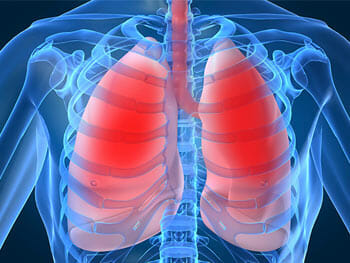
What is the most deadly form of cancer in the U.S.? Lung cancer. In fact, lung cancer accounts for about one-third of all cancer deaths — more than breast cancer, colon cancer and prostate cancer combined, according to the American Cancer Society. And what causes lung cancer? 90% of lung cancers develop from the use of tobacco – cigarettes, pipes, cigars and even second-hand smoke breathed by non-smokers.
The American Cancer Society has designated November as Lung Cancer Awareness Month, with November 20 known as the Great American Smokeout, when smokers are encouraged to make a plan to quit.
There is some good news for those of us who live in Maryland. Our state is ranked 7th overall for combating the high toll of lung cancer, according to a new survey by Wallet Hub. They looked at data compiled by many sources, such as the U.S. Census Bureau, the CDC, the EPA, and the American Cancer Society, focusing on things like air quality, the price of cigarettes, taxes imposed on tobacco products, number of smokers in the state, lung cancer rates, and accessibility to cancer hospitals.
Here is how Maryland scored in the Wallet Hub survey:
- Only 4 states ranked better than Maryland when it came to the number of adult tobacco users per capita.
- We ranked #1 for number of smokers who have attempted to quit.
- Maryland ranked #9 as having an environment favorable for lung cancer. The metrics weighed here included air quality index, price of a pack of cigarettes, cigarette taxes, number of tobacco users, and percentage of smokers who attempted to quit.
- We ranked #14 for lung cancer prevalence and prevention, determined by looking at lung cancer death rates, new cases of lung cancer, free services available to those who want to quit, top-rated cancer hospitals, smoking bans, and radon laws.
Our favorable rankings are no doubt due in part to a program created by the Maryland General Assembly in 2000 — the Cigarette Restitution Fund (CRF) Program, funded by the 1998 Master Tobacco Settlement Agreement with the tobacco industry. Through the CRF Program, Maryland has created tobacco-use prevention and cessation programs; cancer prevention, education, and screening programs; cancer research programs; and a statewide network of cancer and tobacco local community health coalitions. In fiscal year 2014, the legislative appropriation for CRF is $25 million for the cancer program, $7.7 million for the tobacco program, and $14.7 million for the Breast and Cervical Cancer Program.
The CRF Program accomplishments have been admirable. For the fiscal years 2001 through 2010, they report the following achievements:
- 2,123,335 people were educated on tobacco use prevention and control in a variety of venues including local health departments, community outlets, and at faith-based and grassroots organizations.
- 98,077 Pre-K students received multiple tobacco use prevention education sessions.
- 2,149,404 K – 12 students received multiple tobacco use prevention education sessions.
- 210,820 college students received tobacco use prevention education on campus.
- 13,432 students received smoking cessation counseling and support at school.
- 6,039 stores were issued citations for selling tobacco to minors.
- 6,394 youth were cited for illegal possession of tobacco products.
- 62,927 adults participated in smoking cessation classes and counseling sessions.
- 29,232 received nicotine patches, 4,836 received Chantix, and 1,304 received Zyban to support their quit attempt.
Early diagnosis and treatment can mean the difference between life and death. The Early Lung Cancer Action Program (ELCAP) was developed in 1992 to study the effectiveness of CT scans in lung cancer prevention. Their research has found that the curability of Stage I lung cancers is 80-90% and annual CT screening allows at least 80% of lung cancers to be diagnosed at clinical Stage I. If you live in Maryland or Washington, D.C., are older than 40 and are a former or current smoker, you may be eligible to receive a free lung cancer screening at Holy Cross Hospital in Silver Spring, Maryland, under the ELCAP Program.
The United States Preventive Services Task Force recommends that people age 55 to 80 who have smoked a pack a day for 30 years or more, or 2 packs a day for 15 years, or who have quit within the past 15 years should receive a low-dose CT screening for lung cancer every year until they have not smoked for 15 years or until they develop a health problem that would shorten their life or prevent them from being able to have surgery if they were found to have lung cancer.
I’ve been a fighter for most of my life. My boxing career included winning the 1979 Central Pennsylvania Novice Golden Gloves and the 1980 South Atlantic AAU bantamweight title. My legal career has included fighting for the rights of those who have been victims of medical malpractice. That, regrettably, includes individuals who had to fight cancer and lost because their disease was not diagnosed early enough to get it successfully treated. Sometimes this happened because a doctor misread a test and diagnosed cancer as something else, like tuberculosis. Sometimes it was because they didn’t follow-up on what they saw on an initial test and the cancer progressed. And sometimes their negligence caused them to completely miss seeing the evidence of cancer.
We’re doing a lot right in Maryland when it comes to preventing lung cancer, according to the Wallet Hub survey and other reports. But if you or your loved one is the victim of medical negligence in the form of a cancer misdiagnosis, call The Law Offices of Steven H. Heisler at (410) 625-4878.
